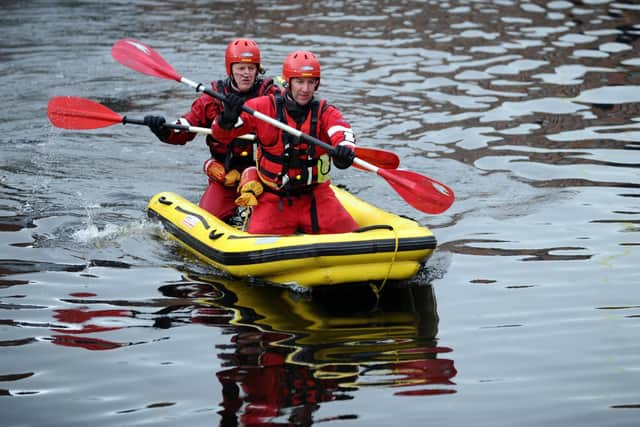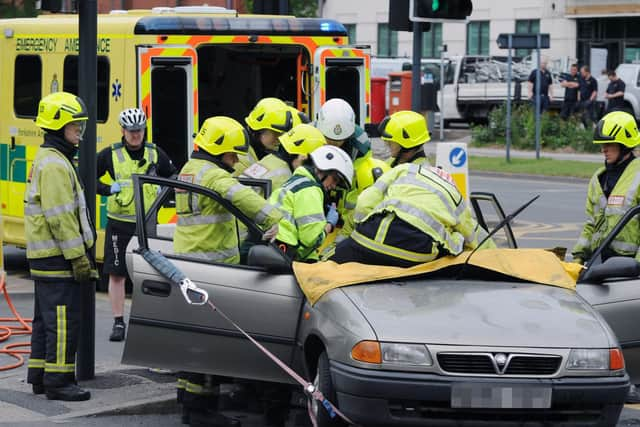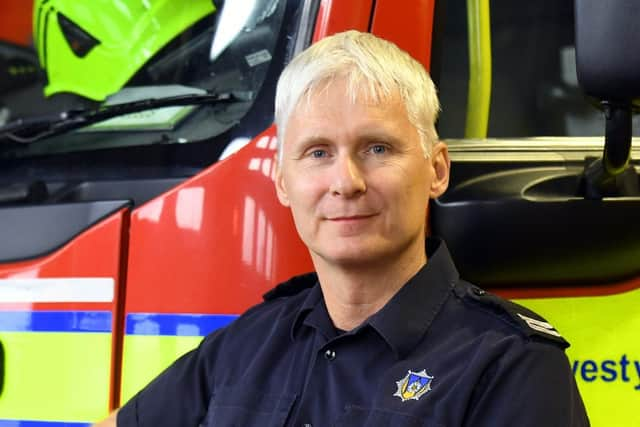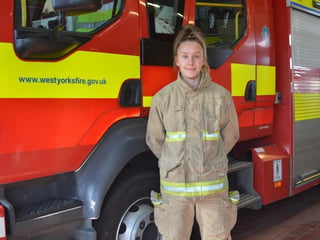'It is part of a firefighter's DNA to provide help during difficult times'
and live on Freeview channel 276
It encompasses everything from dealing with the aftermath of collisions on the roads and rescuing people from rivers, to responding to medical incidents and suicide attempts.
Crews here and across West Yorkshire could be called upon to deal with building collapses, hazardous materials, flooding and much more. And, of course, there are the animal-related rescues that give rise to the well-worn jokes about days spent rescuing cats stuck up trees.


Advertisement
Hide AdAdvertisement
Hide AdThe Yorkshire Evening Post continues its Your Right to Know campaign this week with a look at the statistics for non-fire incidents tackled by West Yorkshire Fire and Rescue Service.
The latest figures show that the service responded to 2,995 non-fire incidents during 2018/19, an increase of 20 per cent since 2014/15.
Deputy Chief Fire Officer Dave Walton told the YEP: “As we are named firefighters, there can be the misconception that all we do is fight fires – when really the role is so much more than that. No two days in the job are the same and our crews have to be prepared for a huge range of possible calls.
“We also keep the community safe in less dramatic ways by fitting smoke alarms and educating people around fire safety.


Advertisement
Hide AdAdvertisement
Hide Ad“Our firefighters truly are multi-skilled, and we’re constantly training using the latest skills and equipment to keep the people of West Yorkshire safe.”
It is no surprise that firefighters are joining colleagues across the emergency services, the NHS and beyond to support the fight against coronavirus. They will help as needed with tasks ranging from driving ambulances to delivering food and medicine to those self-isolating.
Also in news: Leeds West Indian Carnival organisers 'deeply saddened' by cancellation - full statement
Chief Fire Officer John Roberts said: “It’s part of a firefighters DNA to provide help during difficult times so we are pleased to support this way of working together with our fellow emergency services.


Advertisement
Hide AdAdvertisement
Hide Ad“We are already working at the heart of our local communities, and trained in things like driving emergency vehicles and responding to critical situations so we are well placed to deliver these additional tasks to help protect the most vulnerable.”
But he stressed these additional duties would be on top of the service’s usual role in keeping West Yorkshire safe.
“I’d like to assure the public that fire cover remains a priority for us as a service and we will continue responding to all core emergencies, such as fires and road traffic collisions,” he said.
Road traffic collisions were the most frequent non-fire incidents during 2018/19, with 614 recorded – the equivalent of nearly 12 per week.
Advertisement
Hide AdAdvertisement
Hide AdThis was followed by 389 requests to gain entry to a property and 270 calls to support other agencies. There were also 255 lift releases, 122 animal rescues, 84 flood-related calls, 77 medical incidents and 44 water rescues.
The latter require a response from specialist water teams, such as those at Leeds Fire Station where crew manager Frank McNeil, inset, is based.
Mr McNeil: “It’s the training more than anything else that separates us. We have our own personal protection dry suits and personal flotation devices.
“We’re trained to self-rescue. If we do find ourselves in trouble in fast water as we’re performing a rescue and get stuck, we’re trained to swim ourselves out of danger, if you like.”
Advertisement
Hide AdAdvertisement
Hide AdGetting an accurate location can be among the first challenges.
“Where somebody goes in, it doesn’t necessarily mean it’s where they’re going to be when the crew get there,” he said. “The most important thing is to get us out first, it’s getting us on the way. The last thing we want is somebody else trying to go in to rescue someone and getting into difficulty themselves.”
Also in news: 'I will love you forever' - sister pays tribute after 30-year-old popular Leeds DJ died from coronavirus
Non-fire incidents in 2018/19
2,995 incidents
614 road traffic collisions
389 effecting entry
270 assisting agencies
255 lift releases
122 animal assistance
84 flooding
77 medical incidents
66 hazardous materials
44 water rescue
